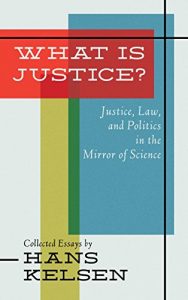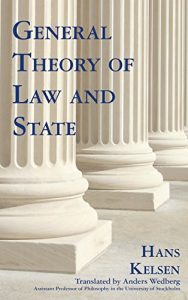What is Justice? presents Kelsen’s mature theory of natural law and his incisive commentary on Platonic, Aristotelian, and Judeo-Christian doctrines of justice. Originally published: Berkeley: University of California Press, 1957. [vi], 397 pp.
“You simply cannot get around this book if you want a real understanding of the fundamental ideas on which the great work of Kelsen is built. Reading this volume you may once more admire the transparent clarity of style and the merciless consistency of reasoning which are well known qualities of this author.” --Alf Ross, 45 California Law Review 564 1957
Possibly the most influential jurisprudent of the twentieth century, HANS KELSEN [1881-1973] was legal adviser to Austria’s last emperor and its first republican government, the founder and permanent advisor of the Supreme Constitutional Court of Austria, and the author of Austria’s Constitution, which was enacted in 1920, abolished during the Anschluss, and restored in 1945. He was the author of more than forty books on law and legal philosophy. Active as a teacher in Europe and the United States, he was Dean of the Law Faculty of the University of Vienna and taught at the universities of Cologne and Prague, the Institute of International Studies in Geneva, Harvard, Wellesley, the University of California at Berkeley, and the Naval War College.
“You simply cannot get around this book if you want a real understanding of the fundamental ideas on which the great work of Kelsen is built. Reading this volume you may once more admire the transparent clarity of style and the merciless consistency of reasoning which are well known qualities of this author.” --Alf Ross, 45 California Law Review 564 1957
Possibly the most influential jurisprudent of the twentieth century, HANS KELSEN [1881-1973] was legal adviser to Austria’s last emperor and its first republican government, the founder and permanent advisor of the Supreme Constitutional Court of Austria, and the author of Austria’s Constitution, which was enacted in 1920, abolished during the Anschluss, and restored in 1945. He was the author of more than forty books on law and legal philosophy. Active as a teacher in Europe and the United States, he was Dean of the Law Faculty of the University of Vienna and taught at the universities of Cologne and Prague, the Institute of International Studies in Geneva, Harvard, Wellesley, the University of California at Berkeley, and the Naval War College.








